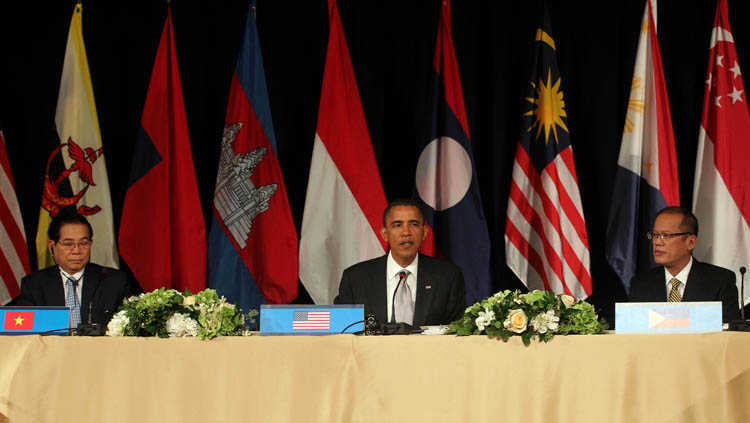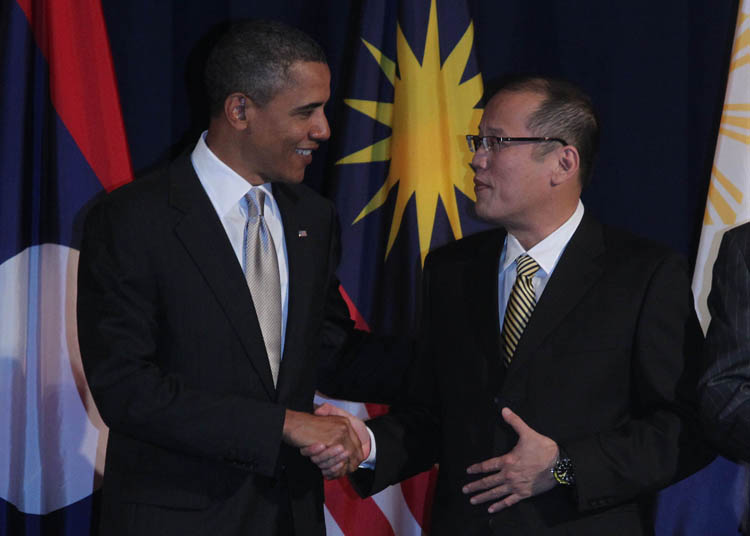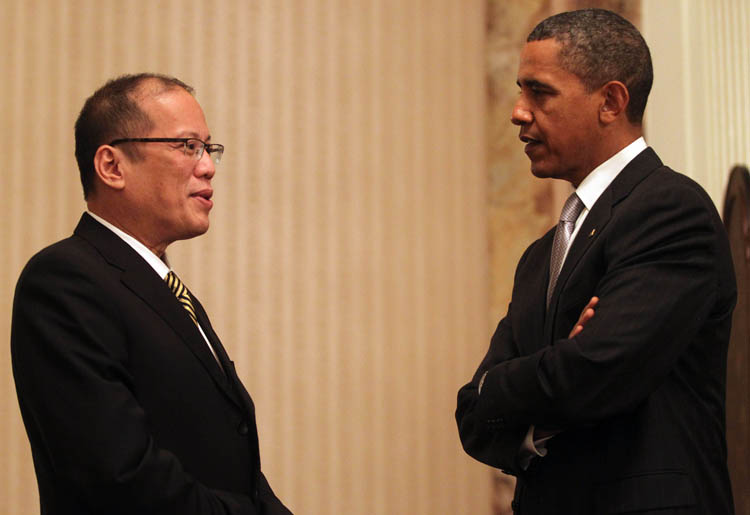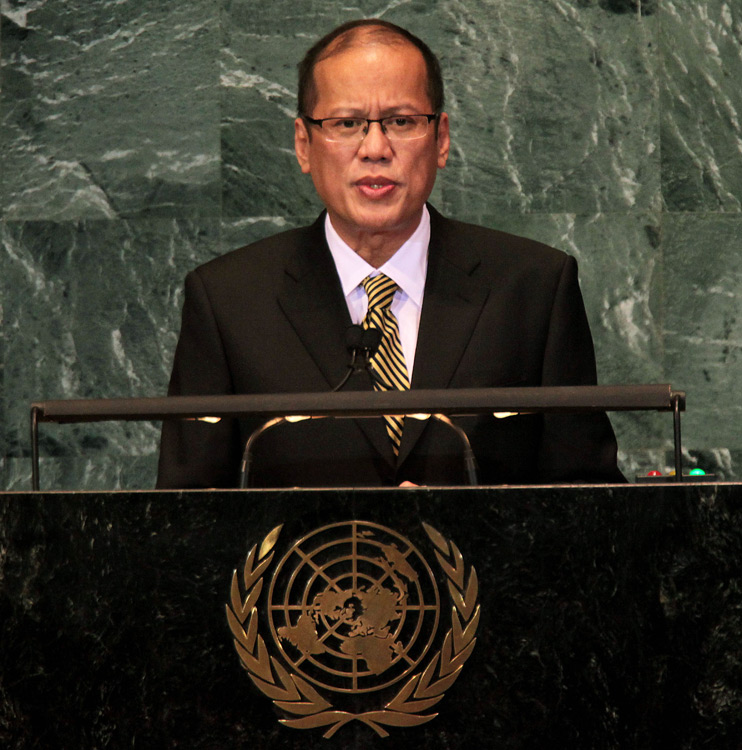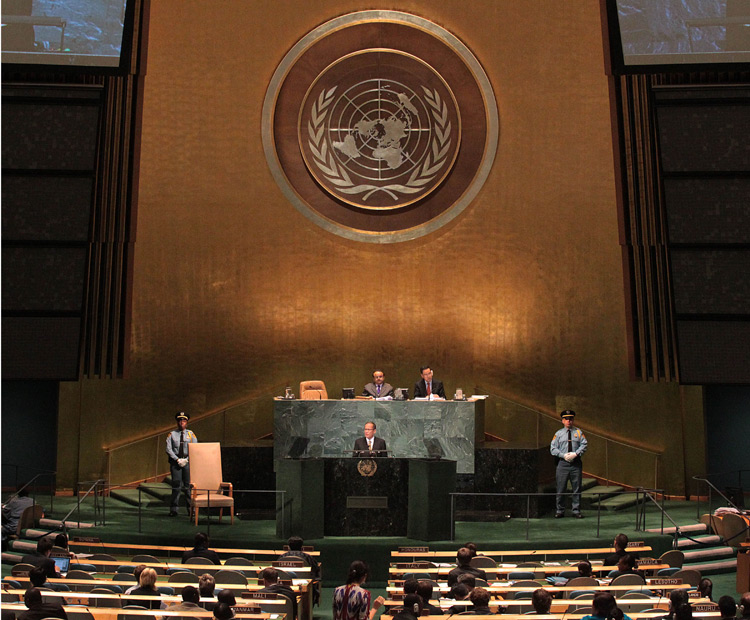Statement
of
His Excellency Benigno S. Aquino III
President of the Philippines
Before the 65th General Assembly of the United Nations
[September 24, 2010, United Nations, New York City]
Mr. President:
Allow me to convey the greetings of the Filipino people to you and the delegates gathered for the 65th session of the UN General Assembly.
The United Nations was founded on the belief that in collective action lies collective security. It is when nations reach across their borders that the immense problems of our age begin to be manageable.
In a world that has become increasingly globalized, the challenges that we face have become globalized as well. Climate change; pandemics; terrorism and weapons of mass destruction; transnational organized crime such as human trafficking and the illicit drug trade; the continuing vulnerability of migrants, women, persons with disabilities, and the poor; and the challenges posed by increasingly interconnected economies all call for a further strengthening of international cooperation.
All of us here, representing our respective nations, are stewards entrusted with the well-being of our respective peoples. We are also called to be responsible and responsive members of the community of nations. Clearly, we are already aware that the problem of one poses a problem for all. Any solution, then, depends on us recognizing that each of our nations does not exist in a vacuum, but rather, in an increasingly interdependent global milieu.
The central revelation here is that for humanity to progress, all nations must progress as one. The quest for universal human dignity should not be defined by geographical, racial, or cultural boundaries, nor should it be set back by our desires to move our own nations forward. Global progress means equitable progress.
The industrialized nations of the world can look with pride on the living standards their peoples enjoy. But, as one of my distinguished predecessors once said, “Those who have less in life should have more in law.” This basic principle of social justice is also the most basic humanitarian challenge of our times. The wealth of nations must become an instrument to move the world further along the straight and righteous path of compassion and communal responsibility.
The message is clear: there are those who need help, and acting with compassion toward those who need help is a response that is both humane and necessary.
This idea has been trumpeted for decades, and yet, combating inequality remains one of the greatest challenges of our times. The chasm between the powerful and powerless, the haves and the have-nots, remains to be bridged. The past century has demonstrated, in terms so stark that it inspired the creation of this organization, that when the mighty clash, those who have less end up trampled. This is true where conflict exists, and true where markets exist; true in our nation, and true in an international context.
The concept of vulnerability and inequality is all too clear in the global effort to address climate change. Those who stand to lose much, if not everything, from the effects of man-induced climatic conditions are those who did little to cause it. There is an enormous need to ensure, as a matter of justice, that countries, particularly the vulnerable, are assisted in their adaptation and disaster risk-reduction efforts and are provided the necessary resources to build climate-resilient communities. This should go hand-in-hand with ambitious commitments by major economies to significantly reduce global greenhouse gas emissions.
Many of you may say you have already given mightily of your resources. But surely we do not need flood and famine to remind ourselves that there is so much more that must be given, because there are so many more who deserve the hope of a better life.
The most immediate focus of cooperation demanded of us today is to collectively ensure that the eight Millennium Development Goals will be achieved by all in the remaining five years. This is a daunting task; and we are all aware that national resolve has to be complemented by bilateral, regional and multilateral cooperation.
Rising to the challenges of our era requires, within each of our countries, a strengthened regulatory system. This does not mean a cumbersome, intrusive government, but rather a government that allows private enterprise to thrive, while ensuring that they remain cognizant of their social responsibilities, and empowers them, in turn, toward fulfilling these responsibilities. Many governments are tackling this challenge, including the government of the Philippines. Our administration’s pledge: To channel the gains we might reap from Public Private Partnerships into social services, like those in health, education, and poverty alleviation.
Across boundaries, the battle against inequality requires a balanced approach from those in authority: to be conscious of our responsibilities to our own people, and of our duties to regions and the globe. Already we are witnessing a rethinking of traditional paradigms, a shifting of our focus towards ensuring that the global system does not leave anyone behind.
And while my nation continues to benefit from the compassion of those who are more able to help, this does not mean that we, or our friends in the developing world, will be entirely dependent on the largesse of the developed world. We will not be passive players in our quest for development. My nation remains active in the G77 and other efforts toward enhancing South-South cooperation, and articulating and promoting our collective economic interests.
This is what our people put us in power for. This is what the world expects of us as leaders—to be exemplars of what it is to be compassionate human beings, and vanguards of hope for our common humanity.
For is not this hope also the hope that unites us as human beings? It is the same hope that allows us to break down walls of mistrust, which may take the form of intolerance, fear, or violence. It is the same hope that leads us to gather in this hall as our predecessors did.
It is the same hope that will give our generation of leaders the strength to elevate this global assembly to a place where, collectively, the nations of the world could find ways to make a better life possible for all.
For so many times in our history, my people have shown that, united, nothing is impossible. We called it People Power. It is my earnest hope—and in the greatest interest of humanity—that we harness the energies of dialogue, solidarity, and communal responsibility, so that a global People Power toward equitable progress may be achieved.
Thank you.
|
